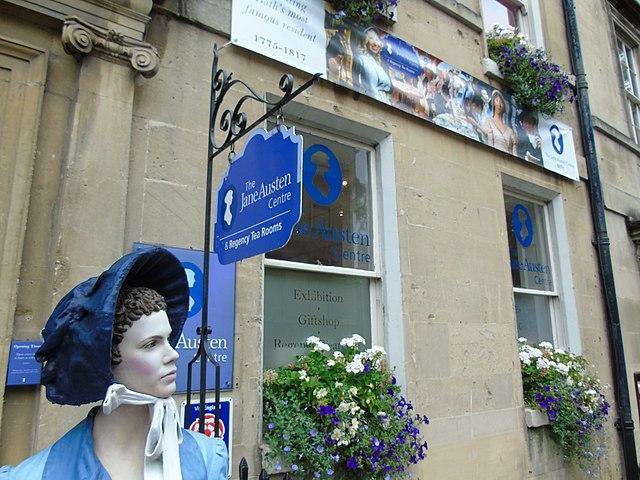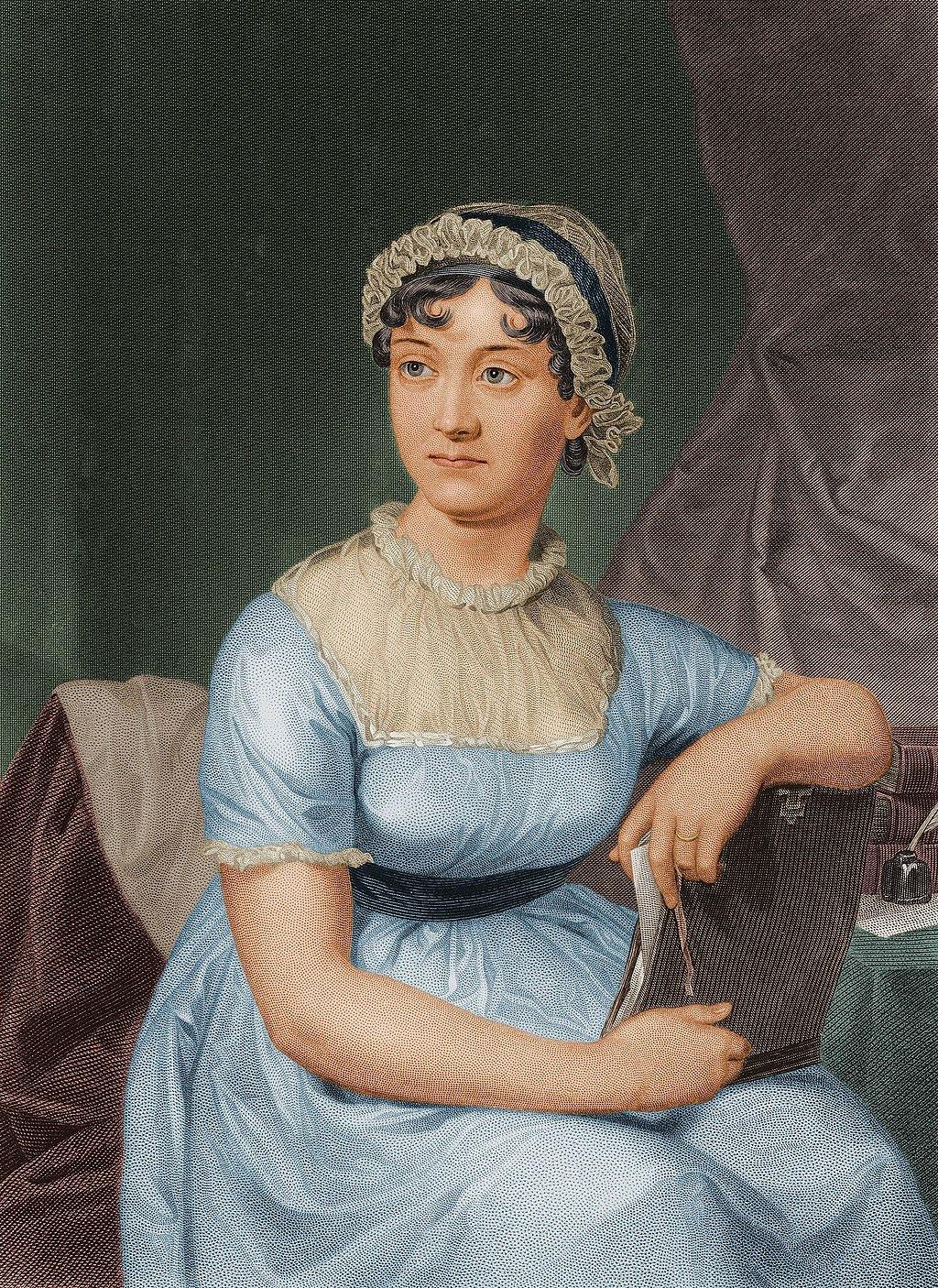Mansfield Park: Jane Austen the Contrarian
Mansfield Park: Jane Austen the Contrarian
 Mansfield Park is probably the most controversial and least favored of all six Austen novels. Drawing the issue of slavery into the limelight, post-colonialist critic Edward Said had certainly stirred up some ripples in alleging Austen’s acceptance of British imperialism with her mention of Sir Thomas Bertram’s Antigua plantation. (1) Susan Fraiman has aptly presented her rebuttal to Said’s argument, noting in particular Austen’s brilliant irony and metaphor upon deeper reading. (2) So here, I would just like to concentrate on Austen’s characterization, which I believe is more in line with her central purpose in the novel. That brings me to the other major controversy.
Mansfield Park is probably the most controversial and least favored of all six Austen novels. Drawing the issue of slavery into the limelight, post-colonialist critic Edward Said had certainly stirred up some ripples in alleging Austen’s acceptance of British imperialism with her mention of Sir Thomas Bertram’s Antigua plantation. (1) Susan Fraiman has aptly presented her rebuttal to Said’s argument, noting in particular Austen’s brilliant irony and metaphor upon deeper reading. (2) So here, I would just like to concentrate on Austen’s characterization, which I believe is more in line with her central purpose in the novel. That brings me to the other major controversy.
What Makes a Heroine?
Published after Pride and Prejudice, Mansfield Park presents a very different heroine from that of Austen’s previous success. Fanny Price is often measured against Elizabeth Bennet, consequently being looked upon as inferior. On the outset, Fanny is indeed everything Lizzy is not. First of all, she is physically fragile, easily succumbs to exhaustion and fainting spells, very unlike Lizzy who can take on extensive walks in the outdoors, happily treading through miles of muddy paths. No rosy cheeks from such exercise for Fanny. She may have grown into a fair lady at eighteen, but she does not have Lizzy’s athletic prowess, or her pair of fine eyes, the trademark of her exuberance. Further, Fanny Price is painfully shy, an introvert. Readers may find her insipid, lacking glamour, but they may be more impatient with her passive, yielding personality.
Why does Jane Austen present to us such a heroine, especially after the very lively and charismatic Lizzy Bennet? Well, I, for one, am glad to see Austen has demonstrated her wisdom by depicting an anti-stereotyped heroine. With Fanny Price, Austen has shattered the image of the typical heroine: a captivating beauty, quick witted and forthright, even audacious at times, endowed with energy and charisma. Why is reticence, or introvert nature being frowned upon? When did we start thinking of long-suffering and perseverance as negative traits? Why is humility not getting its rightful esteem? And, why are the quiet, observant and thinking female not as attractive as those who are more expressive, or who possess only outward beauty? What Fanny lacks in physical vigor, she more than compensates with her inner strength. And it is in the nobility of character that Austen has chosen to depict her heroine. Underneath Fanny’s fragile appearance is a quiet and principled perseverance.
Seeing the impropriety of staging a play which entails the remodelling of Sir Thomas’ very private library in his absence, Fanny stands firm in not participating, despite the pressures and insults from her older cousins, the persuasion from the Crawfords, the scornful criticisms from Mrs. Norris, and even the eventual yielding of Edmund himself. In her ingenious manner, with biting irony, Austen pits Fanny Price against her formidable foe, Mary Crawford. At first sight, “Mary Crawford was remarkably pretty.” Not long after that, Austen adds:
“She had none of Fanny’s delicacy of taste, of mind, of feeling; she saw nature, inanimate nature, with little observation; her attention was all for men and women, her talents for the light and lively.”
Indeed, when it comes to moral uprightness, Mary Crawford is no match. Thanks to the way she defends her brother Henry who has snatched Maria away from her husband, even Edmund can now see clearly. Henry Crawford is a carnal schemer, and Mary Crawford is equally manipulative and egotistic. Unfortunately, it takes a scandal and trepidations for others to learn what Fanny has seen clearly from the very beginning. In a way, Fanny Price is more lucid than Elizabeth Bennet in not succumbing to the lure of vanity with Henry Crawford’s superfluous praise and wooing. If only Elizabeth had conquered that soft spot regarding Wickham earlier on….but of course, there wouldn’t be any story then. And if it is admirably bold for Lizzy to resist Lady Catherine de Bourgh, someone who is of no relation to her, Fanny is all the more courageous in her refusing to marry Henry Crawford by standing up against the very guardian to whom she owed her upbringing and her present living, the patriarch Sir Thomas Bertram.
It takes extraordinary fortitude to go against everyone in Mansfield Park, and follow her own heart, while the privilege to explain herself is infeasible. Compared to other Austen heroines, Fanny Price is equally, if not more, worthy. Fanny has the passion of Marianne, while possessing the rationale of Elinor. That is why her secret love for Edmund can endure unfavorable conditions. Her lucid sense of judgement restrains her to reveal it to Edmund, who, with his emotional frailty, would be exasperated knowing his own beloved cousin is a rival rather than a friend of Mary Crawford. Her perseverance can easily match and surpass that of Anne Elliot. She may be uneducated and naive like Catherine Morland to start with, though equally moldable and respectful when taught, as the story progresses she far surpasses her mentor in insight and maturity .
By presenting a heroine who may not be a typical favorite, Austen seems to be writing contrary to conventional norms. (But is it just modern audience who have differed in their expectations, resulting in recent film adaptations altering the very spirit and essence of Austen’s characters to appeal to them?) Has Austen created a character so different from her other heroines? Comparing Mansfield Park with all her other novels, I do not feel she is particularly off her usual standpoint. As with her other heroines, Austen is more concerned with character, virtues, and morals, the inner qualities of the person rather than the outer appearance. Mansfield Park is the best manifestation of her stance. Ultimately, what shine through for our Austenian heroine are:
“…the sweetness of her temper, the purity of her mind, and the excellence of her principles.”
 In the end, the steadfast and long-suffering Fanny Price triumphs. And for critics who assert that Austen had silently condoned slavery, the ending of Mansfield Park should silence them all, for it is the socially and economically disenfranchised and marginalized that is exalted and vindicated. In my view, Edmund does not deserve her. However, it is Fanny’s heart and long unrequited love that Austen attempts to satisfy. And I totally concur with that, for our heroine deserves it. And no, Fanny does not become mistress of Mansfield Park, which is also ideal: it is not affluence and materialism that win after all, but spiritual values and nobility of character that overcome, and they are their own rewards. The Parsonage is a most fitting place for both Edmund and Fanny to begin their life together.
In the end, the steadfast and long-suffering Fanny Price triumphs. And for critics who assert that Austen had silently condoned slavery, the ending of Mansfield Park should silence them all, for it is the socially and economically disenfranchised and marginalized that is exalted and vindicated. In my view, Edmund does not deserve her. However, it is Fanny’s heart and long unrequited love that Austen attempts to satisfy. And I totally concur with that, for our heroine deserves it. And no, Fanny does not become mistress of Mansfield Park, which is also ideal: it is not affluence and materialism that win after all, but spiritual values and nobility of character that overcome, and they are their own rewards. The Parsonage is a most fitting place for both Edmund and Fanny to begin their life together.
Written By Arti of Ripple Effects Arti reviews movies, books, arts and entertainment on her blog Ripple Effects. She has pleasure in many things, in particular, the work and wit of Jane Austen. Notes:
1. Said, Edward W. Culture and Imperialism. (Alfred A. Knopf, 1993).
His chapter on Jane Austen’s Mansfield Park can be read in Dorothy Hale’s The Novel: An Anthology of Criticism and Theory 1900- 2000. (Blackwell, 2005) pp. 691-715. You can read part of it online on Google Books by clicking here.
2 . Fairman, Susan. Jane Austen and Edward Said: Gender, Culture, and Imperialism.Critical Inquiry, 21 (4), pp. 805-821.
Enjoyed this article? Browse our book shop




Leave a comment
This site is protected by hCaptcha and the hCaptcha Privacy Policy and Terms of Service apply.